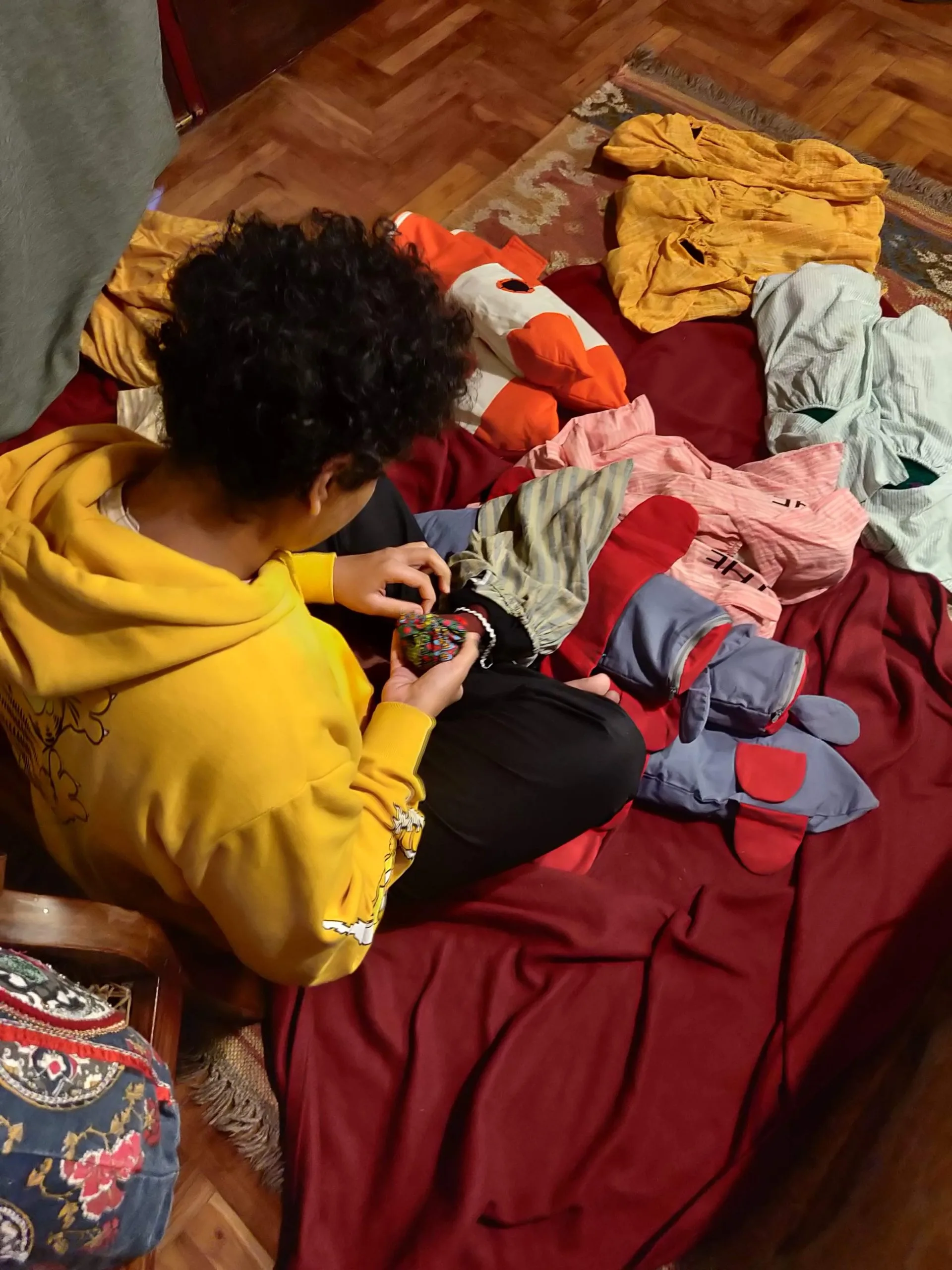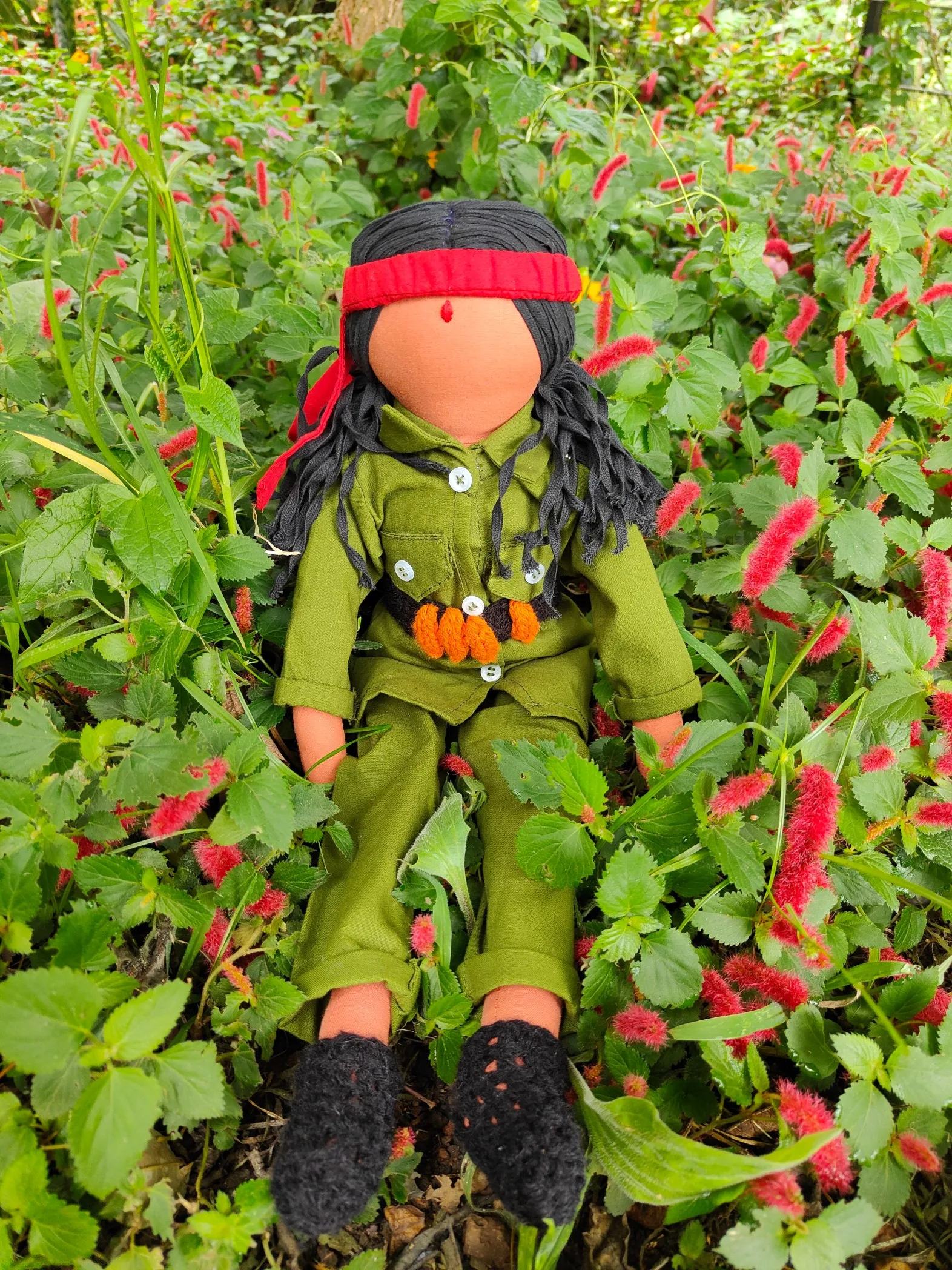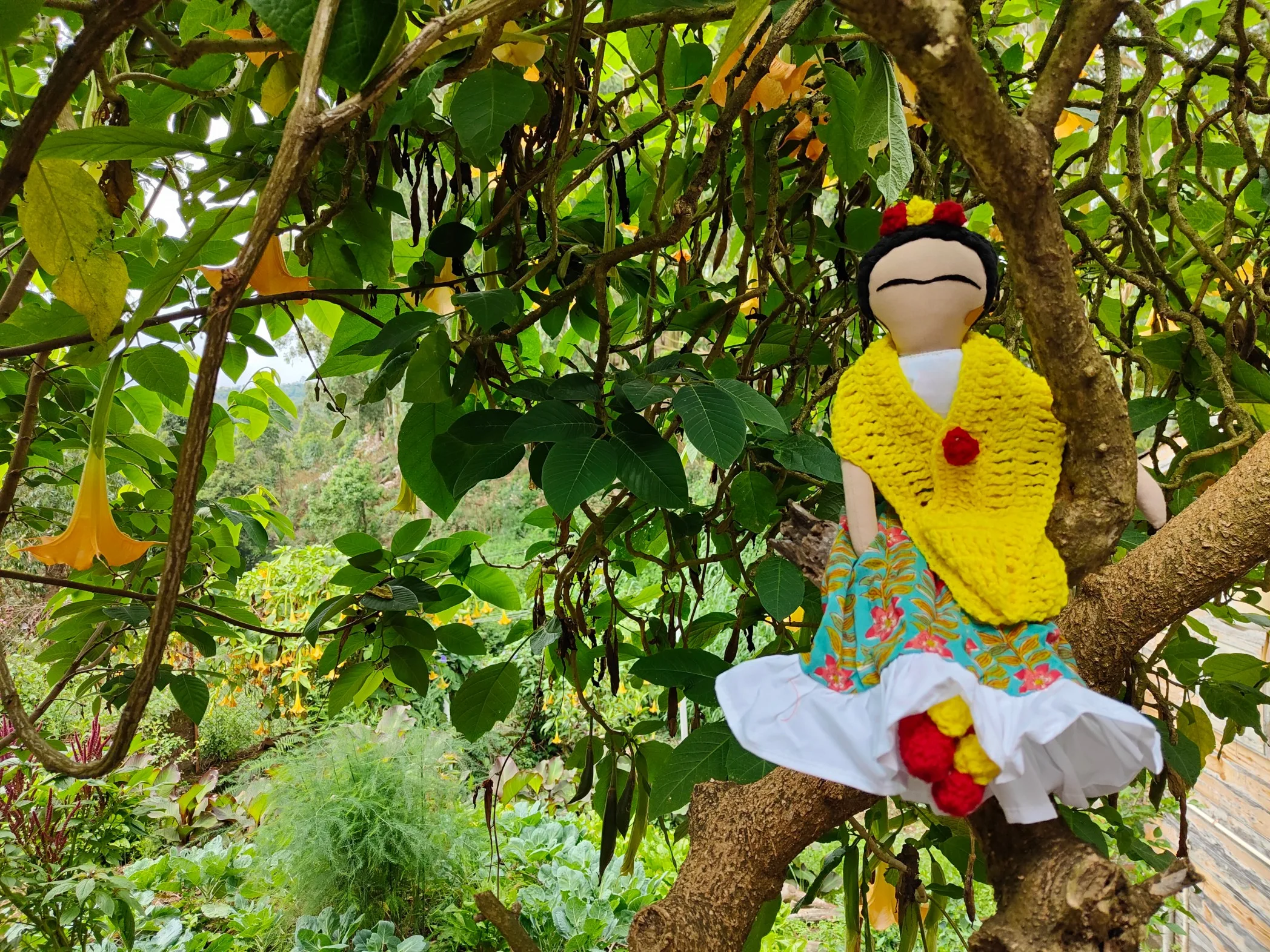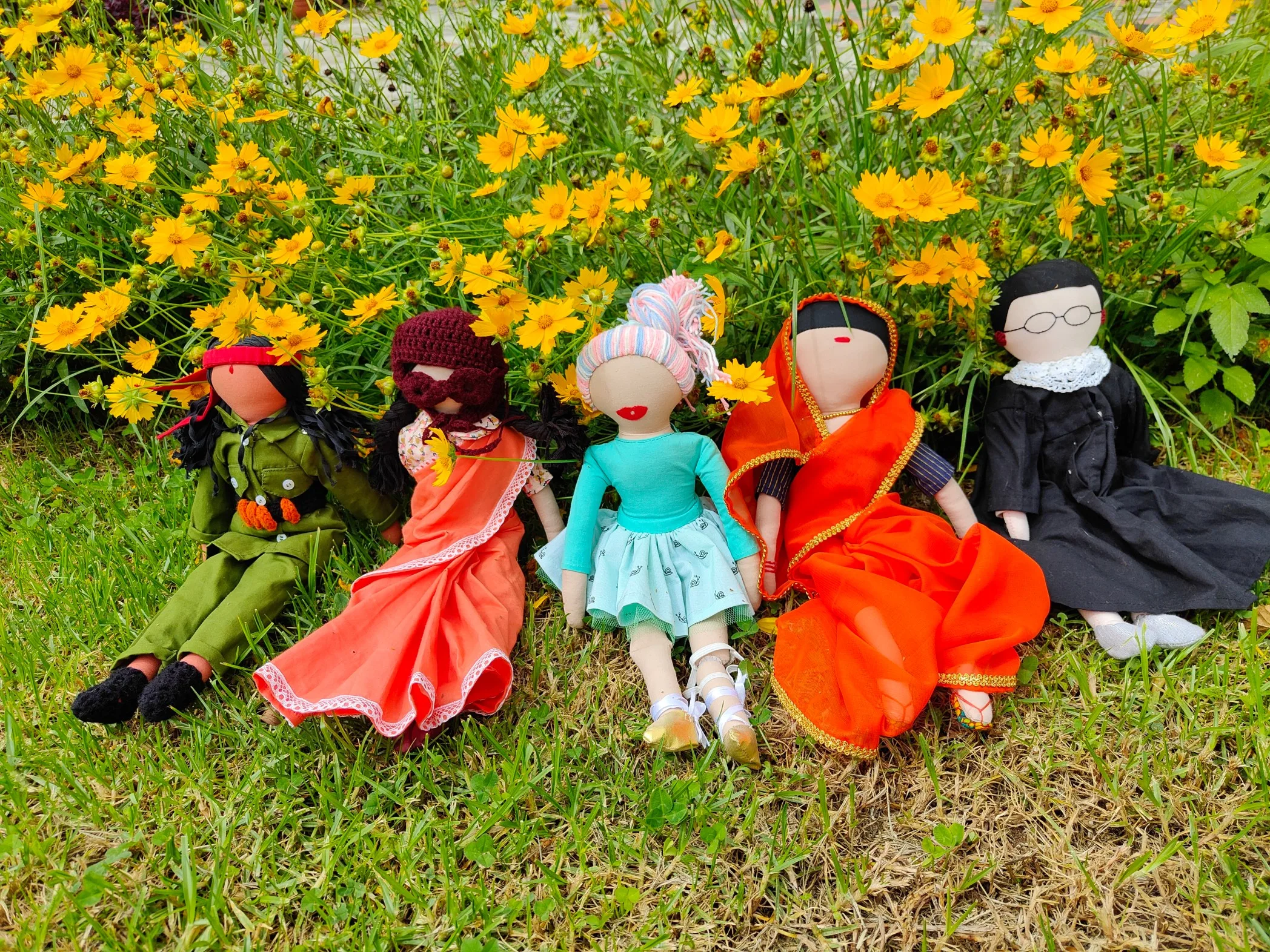‘Since the beginning of time, since the first little girl ever existed, there have been dolls‘ narrates Helen Mirren, in the opening scene of the Barbie movie. Dolls have been an integral part of all our childhoods, peeking out from toy crates or nestled up next to us in bed. Traditionally, dolls have been used to inculcate gendered values of docility and domesticity in young girls. The baby dolls, kitchen sets and the family of dolls inhabiting the dollhouse act as the first model of domesticity in little girls, who, from a very young age, are taught to play ‘families’ and ‘house’.
In this milieu, the question of reclaiming dolls from their hitherto patriarchal connotations is something that needs to be investigated by feminists. Nestled amidst the Palani hills of Kodaikanal, one such small woman-led business is trying to do just that.
The Smritsonian is a brand that makes dolls inspired from national and global feminist icons. Owned by Smriti Lamech, a journalist and a feminist mother of two, The Smritsonian is trying to educate young people about gender, history and society, through interactive and educational play.

In 2019, Smriti and her family had just relocated from Gurgaon to Kodaikanal in Tamil Nadu to enroll her children in a boarding school amidst nature. It was around that time that news of the COVID 19 pandemic was being received and soon after, in 2020, there was a complete lock down in India. It was here, in the middle of the lockdown at Kodaikanal, that she got in touch with local women-led self help groups who were adept in needlework, quilting and crocheting.
‘I learnt that due to the lockdown, all their export orders had dried up and the women, who were in most cases primary earning members, were not getting any work. These women had the skills to make stuffed toys. I thought that I could amplify their business on my Facebook to help them sell their products. It was then that the unique and sustainable business idea of making rag dolls of feminist icons came to my mind. I always was passionate about educating young people about feminist values and thus The Smritsonian was born,‘ says Smriti.
Smriti and her team of local women artisans started with a doll of the famous Black author and feminist poet Maya Angelou.
Smriti and her team of local women artisans started with a doll of the famous Black author and feminist poet Maya Angelou. ‘I wanted the doll to have movable arms and legs. We had to work with fabric and sit together to figure the proportions out. I did not have any experience in manufacturing stuffed toys and this was my first time working on a project like this.’ Smriti tells FII.
However, within hours of posting about the dolls on social media, Smriti woke up to close to a hundred orders asking to buy the dolls. ‘Back then there was no inventory, the ladies at the SHG had just figured out how to make them and it took time. It was just a set of samples and prototypes.‘ says Smriti. ‘Then we started taking orders and I opened up a proper Facebook and Instagram account for the business. This was all during the lockdown‘.
After the first set of dolls, The Smritsonian has made more iconic feminist dolls including dolls of Dalit feminist activist Savitribai Phule, Mexican artist Frida Kahlo, Indian astronaut Kalpana Chawla and US Supreme Court Associate Justice Ruth Bader Ginsberg among others. The brand has sold a few thousand dolls till date.
The importance of teaching young people feminism through play
When asked about the importance of educating young people and making them socially aware, Smriti stresses on the importance of play as a mode of learning. ‘The only way to teach young people is through play. The dolls that I make are based on the philosophy of Rudolf Steiner, an Austrian educator and the Waldorf pedagogy. According to this philosophy, a toy should make the child work. The toy should not work itself.‘

Smriti describes how the dolls she makes do not have generic features but certain iconic defining features like Frida’s brows and RBG’s glasses to identify them. ‘We encourage children to draw in the other features on the doll and “own” the toy. Then they can actively engage with the doll and are not just playing with something that has already been prepared and given to them.‘
Smriti adds that these dolls are for children as well as adults. ‘Another reason why we don’t add generic features to them is to make the dolls appealing to both children and adults. For example, we have had our Ruth Bader Ginsberg doll being gifted to women lawyers.‘ The dolls have been bought by parents and as gifts and also have been used to educate children in classrooms.
Promoting inclusivity and intersectionality in play through a diverse range of dolls
The dolls by The Smritsonian come from diverse backgrounds and are figures of historical and cultural importance from across the world. From Sarla Thakral, the first woman to earn a piloting ‘A’ licence and fly solo to Japanese mountaineer Junko Tabei, the dolls cover a wide range of locations, cultures and professions.
From Sarla Thakral, the first woman to earn a piloting ‘A’ licence and fly solo to Japanese mountaineer Junko Tabei, the dolls cover a wide range of locations, cultures and professions.
‘Recently, we designed a doll of a fictional ballerina with a prosthetic leg. We must talk about disability and we have tried to include a disabled character within our range of dolls‘ says Smriti.
Smriti was invited to showcase her work at the Kochi biennale and she has been retailing with Baro Market, an online store.
The Smritsonian’s motto to make each doll unique
Smriti discusses the challenges of working with fabric and making each doll unique and identifiable. ‘We want to do a lot more feminist icons as dolls but there are limitations to working with this mode. The doll has to be identifiable and therefore we have to choose diverse icons with unique and defining features.‘

The selection of dolls are as iconic as the characters they are modelled after. ‘It is an excellent way to teach my kids about history, feminism and women who have paved the way‘, says Sneha, a techie and mother of one.
Dipali Taneja, another customer says, ‘I bought a Maya Angelou doll and a Ruth Bader Ginsberg doll for my granddaughters a couple of years ago. Even though they are still quite young, they both know what these beautiful dolls signify. They are wonderful role models for girls in an unequal world.’
‘Smriti sent me a Savitribai Phule doll when my son came home to us. This was his first female doll and that too one who had a book in her hand. My son, by the time he was three started commenting on birthday cakes that had unicorns and make up as frosting. He would say ” why don’t girls have books on their cakes as decoration?”. And his first class story telling event was about Savitribai. As a mother of a boy child, this doll as a present from my wonderful and generous friend made my job easier in guiding my son towards the role of women in making a difference in society‘ says Maloshree Sarkar, who received the doll as a gift.
There are many plans in store for the future of The Smritsonian. As a one of a kind venture, exploring a very unique niche, which not only educates about feminist history through play, but also provides sustainable employment to the women artisans in Kodaikanal who make these beautiful dolls, this woman led business is here to stay and redefine the future of play, one feminist doll at a time.
About the author(s)
Ananya Ray has completed her Masters in English from Jadavpur University, Kolkata, India. A published poet, intersectional activist and academic author, she has a keen interest in gender, politics and Postcolonialism.






